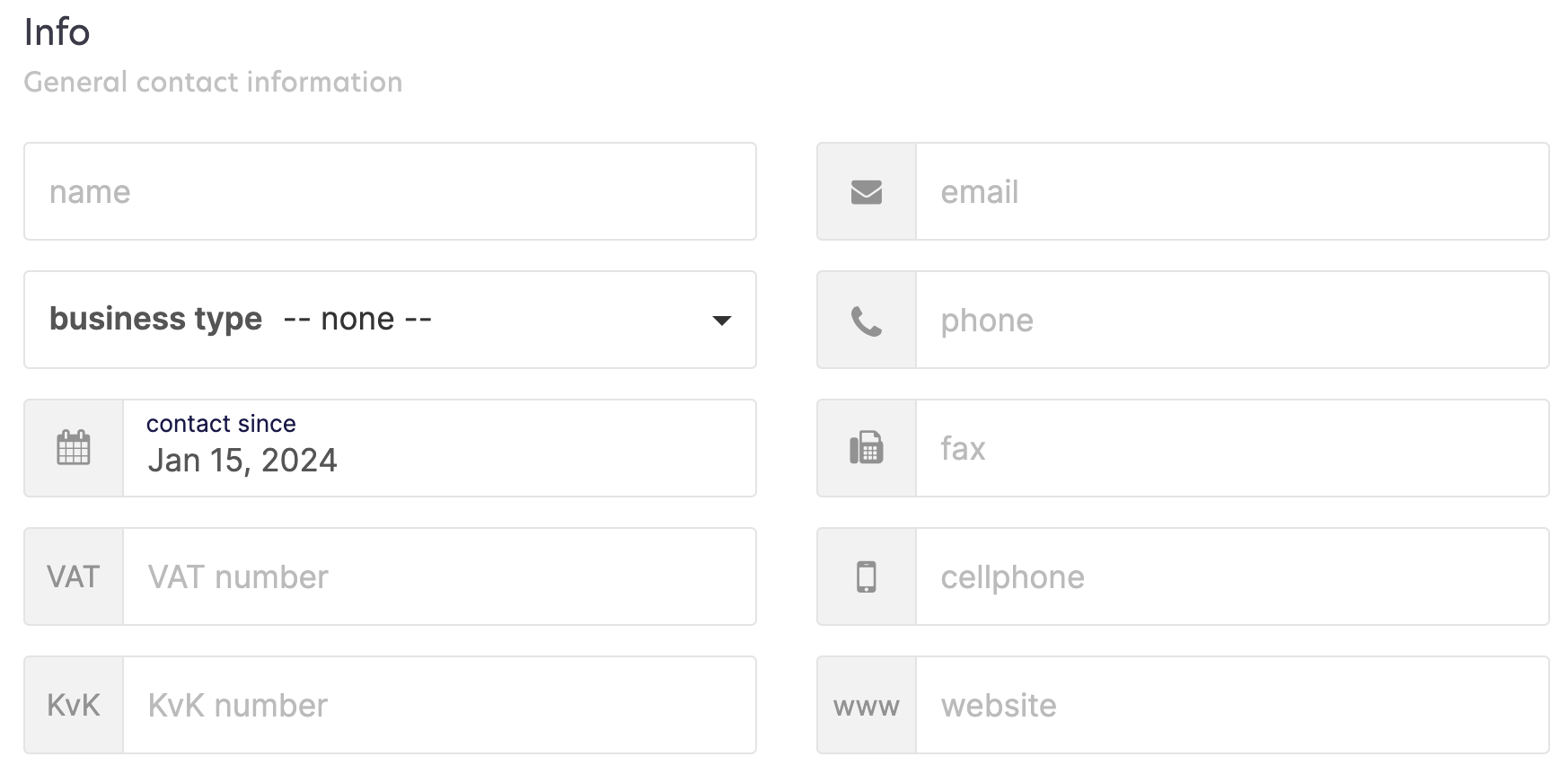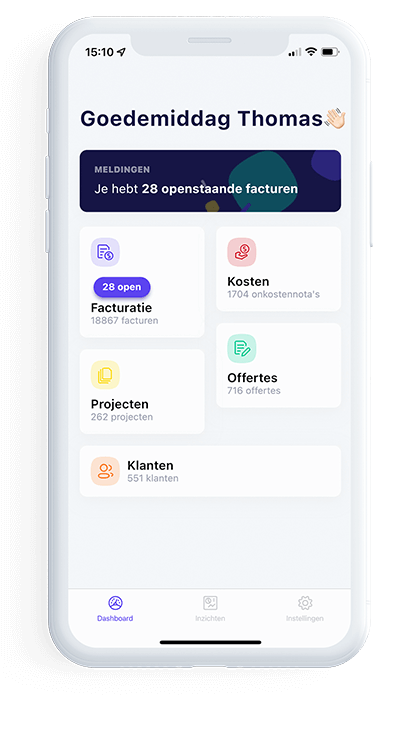
What is (the purpose of) a customer database?
A customer database is a document containing the key information about your customers. A simple definition, but this certainly does not conclude the last word on customer databases.
In this article, we answer the question of why you really do need a customer database.
It may seem like stating the obvious. However, even self-employed individuals and businesses that have been active for years sometimes don't have a customer database. Or they don't use it. Or they handle it in an old-fashioned way, such as using paper instead of digital customer files.
What is the purpose of a customer database?
Just like any other database, a customer database contains data. Without going into further detail, these are the typical pieces of information such as name, address, VAT number,...
For each customer, the same type of data is repeated, consistently structured:
For example, a Belgian VAT number contains 12 digits and is preceded by BE.
An address consists of a street, house number, postal code, city/town, country.

Function of a database
Databases are created to conveniently store and quickly retrieve recurring information like this.
A customer database is a type of database, and its purpose is the same as any database: to quickly access information about your customers, centralized in one place.
This type of database is often referred to as a CRM system. Simply put, it is a program in which you enter your customer data and can immediately use it for your quotes and invoice program.
Running a business without a customer database
It is entirely possible to run a business without a customer database. Not having a customer database still seems like the most logical solution for many entrepreneurs today. However, this convenience eventually turns bitter.
When running a business, there are always situations where you administratively need the data of a specific customer.
Create a quote
Generate an invoice
Look up a phone number
You lose a lot of time if you have to consult a different source for this kind of information each time.
Relying on your memory
What is the postal code of that customer from Erps-Kwerps again?
Browsing through your mailbox
In which email was that VAT number mentioned again?
Searching for/in old invoices or quotes
Where did I put that again?
Consulting a phone book
Really? Does anyone still use that?
Or even surfing on the fast internet
What was the website of my supplier again? Hm, their VAT number is not listed there.
Public relations and marketing without a customer database
From a PR and marketing perspective, it is much more interesting to keep all your customer data in one file rather than scattered across different sources. Suppose you plan to promote your business with a specific campaign, such as:
Send year-end wishes by post
Send a catalog with your new offerings to your customers
Send a newsletter with the latest news from your business
In that case, you benefit from having one central document where you have immediate access to the relevant contact details of all your customers.
Keeping a separate file for your suppliers?
That is certainly possible but involves some extra work. After all, you have to create and maintain two separate files.
Often, the split into two separate files is unnecessarily confusing. The same company can be both a customer and a supplier of your business. If you work with two different databases in that case, you are back to double work:
If your supplier changes their address, you have to update it in 2 programs or files
Do you really want to send the same catalog twice to your supplier, who is also a customer?

A better alternative is to keep your contact details of customers and suppliers in the same file and indicate in a field whether it is a customer or supplier, as is the case in CoManage.
Is a customer database useful for startups or small businesses?
All of the above applies not only to larger or established businesses.
Whether you are a starter, small business owner, or have a micro-enterprise, the benefits for you to start working with a customer database today lie in:
The time you save in the very near future
The habit you develop. New customer? Enter them into the customer database immediately and don't worry about it anymore.
Getting ahead. If your number of customers suddenly increases, you have better things to do at that time than look for a solution to have your contact information always at hand.
Start with your customer database
Creating a customer database is very easy with CoManage. It saves you a lot of time. Today, tomorrow, and for the rest of your life as an entrepreneur.
And what's also nice: you can also immediately create your quotes and invoices in the same program. Convenient and clear.
Discover the benefits of a central customer database for your administration yourself
Very handy
Hi, I am very satisfied, good customer database and invoices are also okay. I only doubt whether I should create a credit note or costs such as stickers for our boxes, flyers, boxes... I am not an accountant but want to keep everything neat, we are a non-profit organization.
– Corry Van Den Brande




